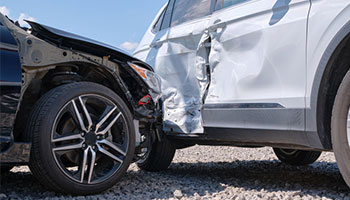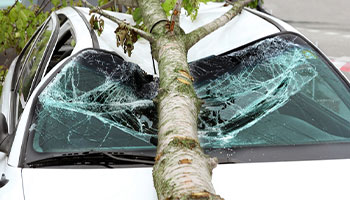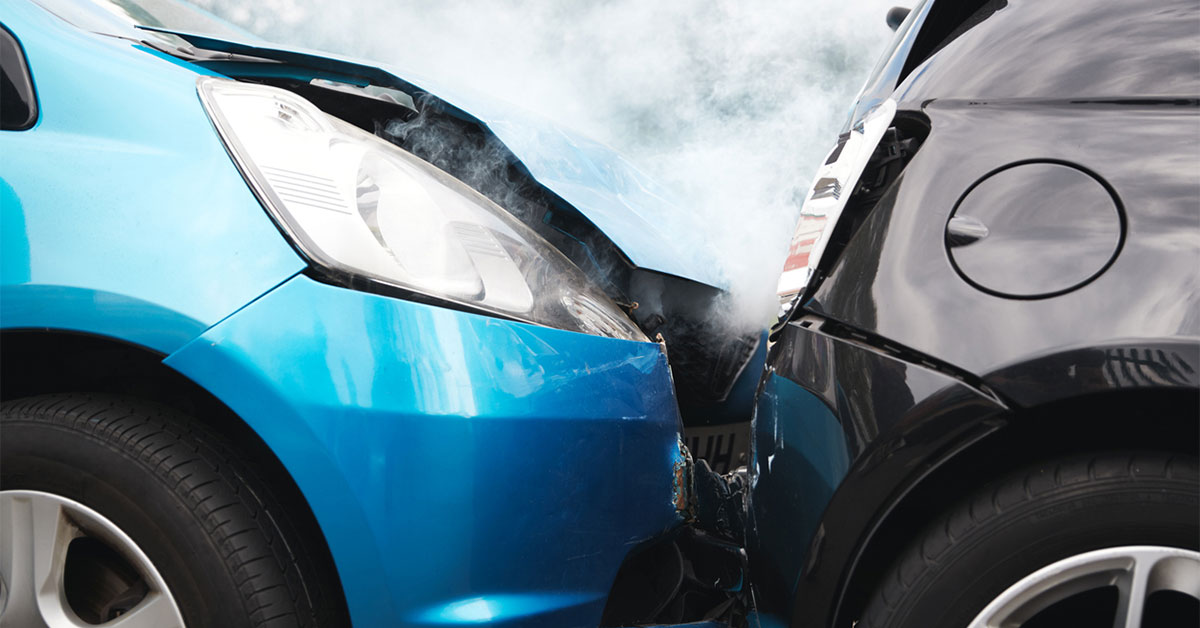When shopping for auto insurance, some people decide to purchase only what is legally required in their state. While this route can help you save money on your premium, it could leave you with a hefty repair bill if your car is significantly damaged after an accident. This is where collision insurance comes in.
Collision insurance is a type of coverage that will help pay to repair or replace your vehicle if damaged in an accident with another car or object. Although not required in any state, collision insurance may be required by your lender if you’re currently financing or leasing a vehicle. Let’s dive into this add-on coverage and what it can and won’t pay for.
What Does Collision Insurance Cover?
Collision insurance will help cover the cost to repair or replace your vehicle (regardless of fault) if it is damaged from…

- An accident with another vehicle (including if your vehicle is parked)
- A collision with a stationary object, such as a fence or light pole
- A single-vehicle accident, such as a rollover
It’s important to note that lenders often require you to purchase collision insurance when you finance or lease a new vehicle.
Collision insurance will not cover any of the following expenses:
- Damage to your vehicle not related to a traffic accident, such as hail damage or theft (covered by comprehensive insurance)
- Any damage to another individual’s vehicle or property (covered by property liability insurance)
- Another driver’s medical bills as a result of an accident (covered by bodily injury insurance)
Understanding Typical Deductibles and Limits
Like most coverages, collision insurance is often subject to a deductible, which is a set amount that you must pay out of pocket before your insurance steps in.

Most insurers will typically allow you to select your deductible amount, which can range from $250 up to $1,000. Generally, a high deductible will result in a lower premium and vice versa.
Your coverage limits may vary depending on your exact policy, but we typically see providers cap payouts at your vehicle’s market value at the time of the accident. This is also referred to as your vehicle’s actual cash value.
For example, let’s say you have collision coverage with a $500 deductible. One afternoon you hit a light post which causes significant damage to your vehicle. If your car is repairable, you’ll pay $500 out of pocket towards any repairs. Your insurer will then handle the rest up to your policy’s limits. However, suppose your insurance provider declares your car as totaled. In that case, you’ll receive a payout equal to your car’s actual cash value minus your deductible.
Do I Need Collision Insurance?
Collision insurance is typically required for those currently financing or leasing their vehicles, as lenders and leaseholders require additional coverage types. However, if your vehicle is paid off, you can decide whether the add-on is right for you.
When deciding on whether to purchase collision insurance, consider the following:
- Your car’s value: Your car’s value plays a major role in collision coverage. If you have a new car, the add-on is most likely worth it to help pay for expensive repairs. On the flip side, purchasing collision coverage may not be ideal if your vehicle is worth less than your plan’s deductible plus the cost of coverage.
- Your financial situation: If you were to get into an accident, would you be able to pay for vehicle repairs or a replacement out of pocket? If not, collision insurance is worth considering for financial peace of mind.
What’s the Difference Between Comprehensive and Collision Insurance?

When shopping for collision insurance, you’ll often see it bundled alongside comprehensive insurance. Although both coverage types can pay for damage sustained by your vehicle, the two cover different scenarios.
Unlike collision insurance, comprehensive insurance covers damage to your vehicle (or its replacement) after it’s been involved in a non-collision event up to your policy’s limits. Examples of non-collision events include theft, vandalism, falling objects, natural disasters (fire, hailstorms, flooding), and others. Comprehensive coverage is also optional, but it may be required when financing or leasing your vehicle.
Get the Help You Need by Speaking with a Specialist
If your goal is to save money, be careful about overlooking add-on coverages such as collision insurance, as you could end up paying much more out of pocket down the line. If you’re unsure about which add-on coverages are right for you, AIS can help. Our insurance specialists will guide you through the options available and know what questions to ask. To speak with a specialist today, give us a call at (888) 772-4247.
The information in this article is obtained from various sources and offered for educational purposes only. Furthermore, it should not replace the advice of a qualified professional. The definitions, terms, and coverage in a given policy may be different than those suggested here. No warranty or appropriateness for a specific purpose is expressed or implied.


